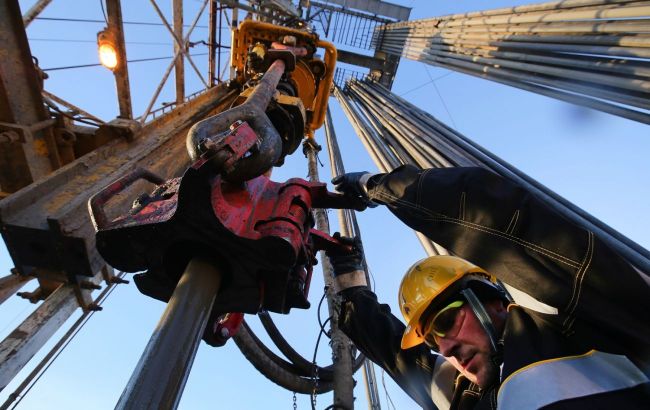Oil prices plunge as Trump slaps 104% tariffs on China
 Photo: Oil prices plummet amid Trump's tariffs introduction (Getty Images)
Photo: Oil prices plummet amid Trump's tariffs introduction (Getty Images)
Oil prices fell to their lowest level in four years. The escalation of the tariff war between the US and China may reduce demand in the world's two largest economies, reports Reuters.
Futures for Brent crude oil fell by 3.8% to $60.4 per barrel. Futures for US West Texas Intermediate crude fell 4.1% to $57.1. Both contracts reached their lowest level since February 2021.
Prices for Brent and WTI crude oil have been falling for five consecutive sessions since US President Donald Trump announced large-scale tariffs on most imports, sparking fears that the global trade war will undermine economic growth and affect fuel demand.
President Donald Trump's 104% tariffs on goods from China went into effect on April 9. The tariffs increased by another 50% after Beijing refused to remove retaliatory duties on American goods by the deadline set by Trump.
Beijing vowed not to give in to US blackmail after Trump threatened to impose an additional 50% tariff on Chinese goods if the country did not lift the 34% retaliatory levy.
“China's aggressive retaliation diminishes the chances of a quick deal between the world’s two biggest economies, triggering mounting fears of economic recession across the globe,” said Ye Lin, vice president of oil commodities markets at Rystad Energy.
The fall in oil prices was further exacerbated by last week's decision by OPEC+ (the Organization of the Petroleum Exporting Countries and its allies, including Russia) to increase production by 411 thousand barrels per day in May. According to analysts, this step is likely to lead to an oversupply on the market.
Goldman Sachs predicts that Brent and WTI crude oil prices could fall to $62 and $58 per barrel by December 2025, and to $55 and $51 per barrel by December 2026.
Amid falling oil prices, the price of Russian ESPO crude for the first time fell below the upper limit of $60 per barrel set in the West.
Earlier, Russia's flagship Urals crude oil grade fell to $50 per barrel. The fall in oil prices has increased pressure on the state budget, depriving the Kremlin of the ability to increase spending for the war against Ukraine.

